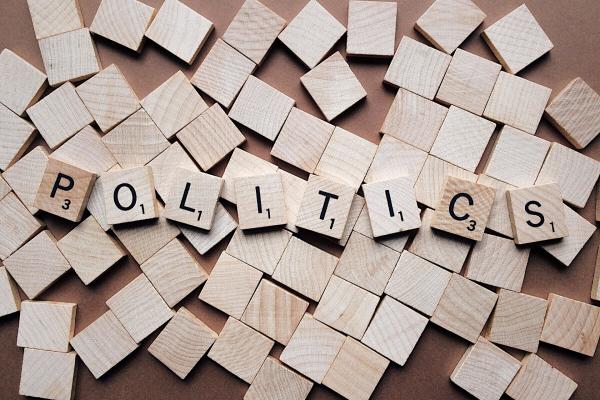72 percent of Americans believe that federal public health institutions play a pivotal role in the nation's health care system, though fewer than 40 percent of people trust these agencies to fulfill that obligation. That's according to a new survey from the Robert Wood Johnson Foundation and Harvard T.H. Chan School of Public Health.
Just 37 percent of Americans have "a great deal" or "quite a lot of trust" in the National Institutes of Health (NIH) and the Food and Drug Administration (FDA), USA Today reported, while only 33 percent hold the Department of Health and Human Services (HHS) in such high esteem. According to the survey:
These findings raise notable concerns for leaders working to shape the future of the United States public health system in the post-Covid-19 era of the 21st century. If this important field is to move ahead, it has to address the concerns of lack of trust and inadequate performance ratings for major public health institutions and agencies.
The survey's results point to a number of changes these institutions could make to boost their credibility with the public. Let's break down the more interesting results and examine several possible solutions to the problem along the way.
Distrust: a widespread problem
Reading recent news reports on COVID skepticism, you may be tempted to believe that it exists largely among a single demographic. CNN has repeatedly pinned the problem on “white evangelicals,” as has NBC. This analysis isn't quite right, according to the new numbers. “There are not statistically significant differences between Black adults and non-Hispanic white adults when it comes to reporting a great deal or quite a lot of trust in recommendations” from key groups in health and healthcare, the survey noted. Across all demographics the CDC fared best, but no federal agency is very well regarded by the public.
Distrust in these institutions isn't really a religious or racial issue. Reporters who misdiagnose the problem in this manner are diverting attention away from the factors that are probably better explanations. I'm no psychologist, but I'd bet money that mixed vaccine safety messages, misleading guidance about masking outdoors and public officials who didn't follow their own “stay home, stay safe” guidelines are better explanations of the public's distrust.
Mission creep
The expanding role these agencies have tried to claim for themselves in recent years may also contribute to the distrust problem. “Importantly, unlike public health experts,” the survey reported, “a majority of the public does not currently identify three major problems facing society — climate change, gun violence, and racism — as main responsibilities for public health agencies to handle.”
Only 43, 40 and 33 percent of Americans, respectively, said public health agencies should tackle those three issues. However you think these concerns should be handled, the point here is that federal officials who insist on greater responsibility than taxpayers and voters want them to have are not winning popularity contests with the public.
Politicization
This brings us to a final and related concern. The politicization of COVID-19 severely hindered America's pandemic response. “We have not had another pandemic that has been politicized by party … Nobody had a Republican or Democratic view on polio vaccine. It just didn’t exist,” survey co-author Dr. Robert Blendon told USA Today. “The minute that happens, people of the party determine what’s going on based on their political views regardless of the facts.”
We examined this issue recently in COVID Skeptics Are Pro-Science? New Study Raises Awkward Questions, so I won't repeat what I wrote there. But consider the previous point for just another moment.
Racism, gun violence and climate change are undeniably incendiary political issues; Americans are divided about what causes them and how to solve them. The survey co-author, a public health expert from Harvard University, just told us that politicization is the problem. But he also wrote in the survey that
the field of public health has moved away from focusing on infectious disease control and now encompasses a much wider range of issues such as the environment and climate change, injury prevention, racism, healthy housing, and reducing drug and alcohol abuse.
In other words, on the tail end of a pandemic that has killed just under 600,000 Americans, our Harvard professor acknowledged that public health has moved away from battling infectious diseases to tackling three highly partisan issues, which will inevitably alienate large swaths of the public no matter how federal agencies address them. [1]
The contradiction is obvious. You can't blame partisanship for a poor pandemic response while arguing that public health experts need to wade into increasingly partisan territory. To quote Will Ferrell in Zoolander, “Doesn't anyone notice this? I feel like I'm taking crazy pills!”
[1] See this essay for a thoughtful critique of public health's mission creep.




